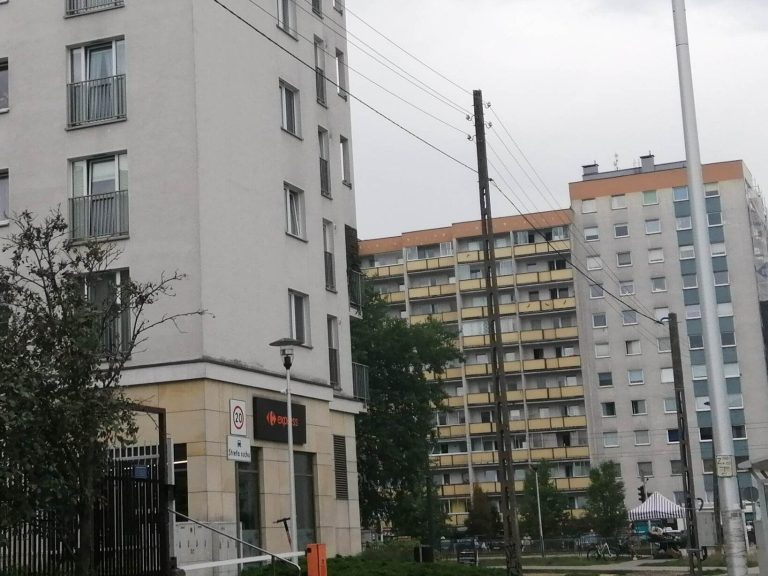The Portuguese were forced to rent empty apartments. The president does not approve it

Scandinavians and Germans buy holiday apartments in Portugal, which has a backfire on the real estate market. There are fewer and fewer premises that the average-earning Portuguese can afford. In order to move the housing market, the parliament passed a law that obliges owners of vacant buildings to rent them.
Portuguese President Marcelo Rebelo de Sousa on Monday vetoed a bill on housing approved by the unicameral parliament in July. In his opinion, the act will not solve the problem of the lack of affordable housing and will not “free” vacancies.
Vacancy in Portugal. The president did not sign the bill
Pursuant to the act, the owner of an apartment that had been empty for a period of two years was to be obliged to rent it or make it available to the commune so that it could find tenants. During the work on the final version of the law, the deputies agreed that summer houses and empty properties located in the Portuguese interior should not be considered vacant. The latter is a nod to people who have moved from small inland towns in search of work to more urbanized regions.
It is estimated that in Portugal, with a population of 10 million, there are currently over 1 million empty houses.
The law, which critics say violates the right to property, will therefore not come into force, but the problem of the lack of housing that average Portuguese earners can afford remains valid. Oceanside regions have fallen victim to their attractiveness: Germans and Scandinavians buy properties there, so prices go up. Developers are more profitable to build residential complexes designed for foreign guests than “ordinary” blocks of flats for buyers with less affluent wallets.
Property prices. In May, the Portuguese took to the streets
The farther away from big cities and corporations, the lower the earnings. In services and tourism, which give work to a huge number of Portuguese, wages are close to the legal minimum, which is 760 euros. This is more than in Poland, but still not enough for average earners to be able to compete in their efforts to buy a flat with buyers from Germany or the Netherlands who want to have holiday apartments in Portugal, or with international companies that buy apartments with the intention of renting them out to tourists for a short period of time. period.
The Portuguese have been complaining for several years that they cannot afford to live in decent conditions and either share larger flats – which is acceptable when you are a student, and later it is a big problem, or they return to their family homes. The BBC reports that the average rent in Lisbon is currently just over 2,000. euro.
Earlier this year, Portuguese comedian and activist Diogo Faro became one of the faces of the affordable housing movement after he posted a video on social media about soaring rents in Lisbon. It was his activity in social media that made the Portuguese believe that it is not enough to complain about high prices, but that politicians must firmly demand regulations that will start to protect citizens, and not just encourage foreigners to buy apartments with swimming pools. In May, 30,000 people took to the streets of Lisbon. protesters, protests also took place in other major cities such as Porto and Braga. Support programs have been created in the country for those who cannot afford high rental prices. However, this is not a systemic solution.
Vacancy in Poland
Thanks to the National Population and Housing Census conducted two years ago, we know that in March 2021 there were over 15.2 million apartments in Poland. 11.7 percent were empty. premises, i.e. almost 1.8 million. Considering that there is a shortage of about 2 million flats in the country, one might think that a ready-made solution is already in place, nothing more than imposing a tax on owners of vacant buildings, which will encourage them to rent unused apartments, or even obligatorily accommodate tenants.
Such ideas are not a solution to the problem. These are houses somewhere in the Podlasie or Lublin region that require renovation to a large extent – abandoned for a reason. And even if they were renovated, would vacant apartments in the village near Ciechanowiec affect the price market in the Warsaw agglomeration? Oh no.
– There are a lot of them (vacancies – ed.) also in towns where industry or large workplaces collapsed. In large cities, where there is a need, vacancies are negligible. These are mainly properties that are completely dilapidated or with legal problems, said Konrad Płochocki, vice-president of the Polish Association of Developers, in an interview with Rzeczpospolita. – The most famous vacancy is the so-called spy in Warsaw, i.e. a building that has been abandoned for several decades. The reason is a legal conflict with the Russian side.






